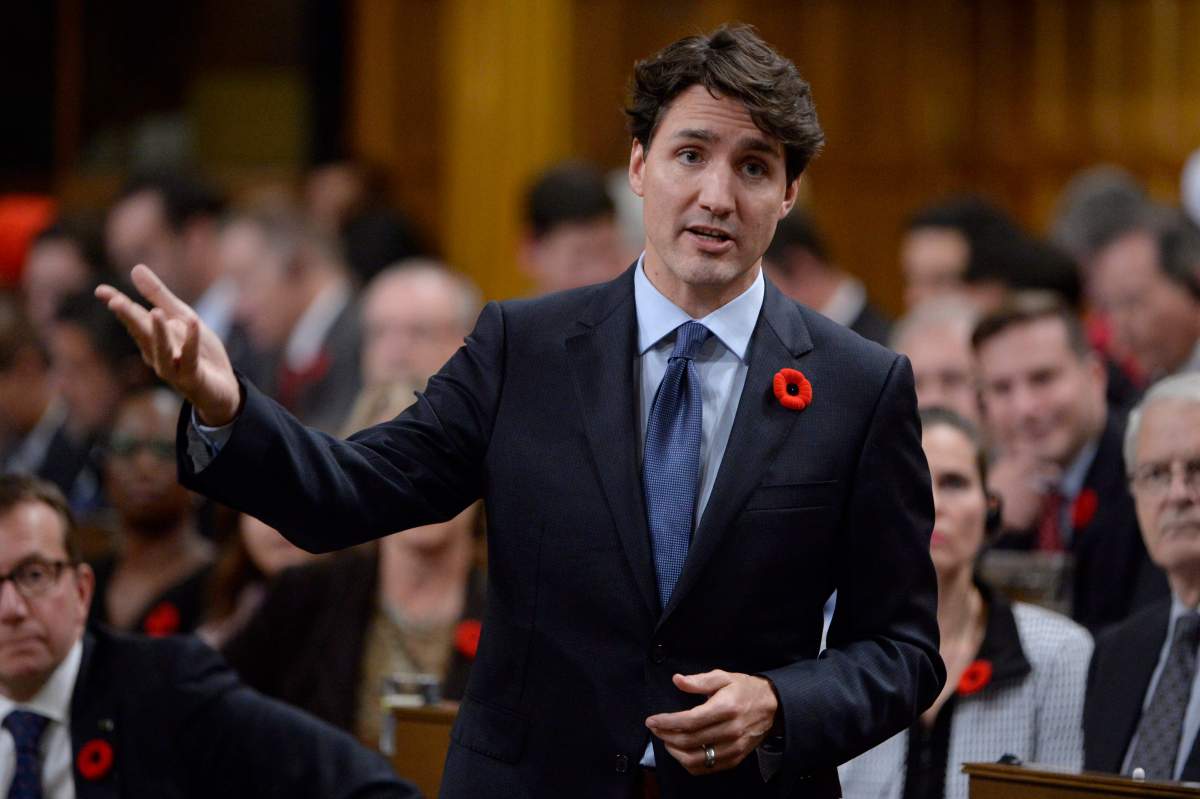There’s trouble in paradise — and it’s bad news for Justin Trudeau’s government. This weekend saw the publication of the Paradise Papers, a data dump of 13.4 million electronic files detailing the tax structures wealthy individuals and corporations have used to reduce their tax burden.

From Great Britain’s Queen Elizabeth, to U.S. Commerce Secretary Wilbur Ross, to U2 frontman Bono, an eclectic list of high-fliers have been brought down to earth, where critics of the 1 per cent are calling for blood.
Among the 3,000 Canadians named in the papers are businessmen Stephen Bronfman and Leo Kolber. According to the papers, the two men used a $60 million trust based in the Cayman Islands to invest in Israel. Bronfman also happens to be a close friend of the prime minister; they have vacationed together and Trudeau asked him to chair the Liberal party’s fundraising efforts in 2013.
Unfortunately, for a PM who styles himself as the champion of the middle class, this news has reverberated across Canada and around the world, accompanied by a particularly bro-mantic photo of Trudeau and Bronfman taken at a barn party in P.E.I. that same year.
In response, Bronfman described himself as a “proud Canadian” who “has always fully complied with all legal requirements, including with respect to taxes,” and “never funded or used offshore trusts.” According to Bronfman, the transaction in question was a “single loan made over a quarter-century ago to the Kolber Trust” which “was repaid five months later, and was on an arm’s-length, fully commercial basis, in full compliance with all legal requirements, including with respect to taxes.”
- High blood pressure drug recalled over low blood pressure pill mix-up
- Canadian Tire ordered to pay nearly $1.3 million for false advertising
- ‘Doesn’t make sense’: Union files labour complaint over federal 4-day in-office mandate
- Ottawa gives Canada Post a $1.01-billion loan amid ongoing financial struggles
It hardly matters. In Question Period today, Opposition MPs seized on the issue, building on the ‘Richie Rich’ image of the Trudeau government built up through a line of questioning directed at Finance Minister Bill Morneau over his failure to put $20 million of company stock in a blind trust.

When Opposition leader Andrew Scheer grilled him on the Bronfman revelations, Prime Minister Trudeau responded: “I will let individuals comment on their own situation but in regards to the Paradise Papers the CRA is reviewing links to Canadian entities and will take every appropriate action.”
With regard to those actions, Trudeau offered only that “we are fully committed to fighting tax avoidance and tax evasion and will continue to ensure that the CRA pursues all infringers upon that for the many years to come.”
The PM then left the rest of the queries to his embattled National Revenue Minister Diane Lebouthillier, who repeated a variation of her talking points for the better part of QP. “Our government is firmly committed to fighting tax evasion,” she said in response to Conservative MP Gerard Deltell. “What we want is a fair tax system for all Canadians. Our actions have resulted in nearly one billion invested in the last two years. This will allow us to recover at least $25 billion.”

Get breaking National news
But as the opposition pointed out, a lot of that recovery seems targeted at low-hanging fruit: diabetics claiming disability tax credits, retail employees getting taxable benefits, and small businesspeople such as family farmers, doctors and entrepreneurs. “When will this high tax hypocrisy come to an end?” lamented Finance critic Pierre Polievre, in a particularly thunderous display.
On this issue, Polievre has a point — and the Tories may just have the moral high ground. The CBC reported that successive Liberal governments failed to pass legislation in the late 1990s and early 2000s that would have limited tax havens, thanks in part to lobbying by the powerful law firm Davies Ward, which had many clients with offshore holdings, including Bronfman. The legislation only passed the House in 2007 after Stephen Harper’s Tories took power, but then died on the order paper after marinating in the Liberal-dominated Senate for nine months.
WATCH BELOW: Paradise Papers coverage
Having styled themselves as the champions of the middle class, the Liberals have made themselves very vulnerable on this issue. It’s not the unequal distribution of wealth that could prove toxic for the government: offshore tax havens cost the Canadian treasury an estimated $6 to 7.8 billion a year.
Divide $7 billion by 35-million Canadians, and reclaiming that money would redistribute $200 a person — not enough to make anyone rich. But it’s the unequal pursuit of taxpayers that’s going to get under voters’ skin — the practice of plucking the middle-income fruit while the juiciest apples hang high off the ground, out of harm’s way.
The Opposition’s narrative has become one of political leaders who think there is one law for them and their friends and another for everyone else. If that story sticks, the Liberals could be looking at Paradise Lost, instead of another heavenly election.
Tasha Kheiriddin can be heard between noon and 2 p.m. ET on Toronto Talk Radio AM640. She’s also a columnist with Global News and iPolitics.ca, where this piece first appeared.
















Comments